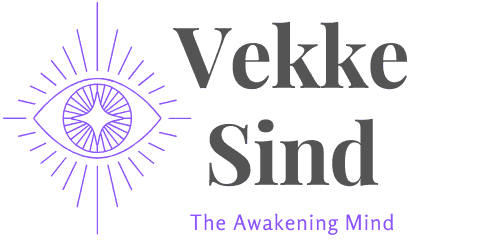Discovering your dominant planet can provide valuable insights into your astrological makeup. Astrology is a complex and fascinating field that has been studied for centuries.
It is based on the belief that the positions and movements of celestial bodies can influence human affairs and personality traits. One of the key components of astrology is the concept of dominant planets.
Dominant planets are the planets that have the most influence over an individual’s personality and life path. They can reveal important information about a person’s strengths, weaknesses, and tendencies.
By understanding your dominant planet, you can gain a deeper understanding of yourself and your place in the world. This knowledge can be used to make better decisions, navigate challenges, and achieve your goals.
Table of Contents
Understanding Astrology

Astrology is the study of the movements and relative positions of celestial bodies and their influence on human affairs and the natural world. It is an ancient practice that has been used for centuries to gain insight into human behavior and personality traits.
In astrology, a person’s birth chart is created by mapping the positions of the planets at the time of their birth. Each planet represents a different aspect of a person’s personality and life experiences.
The position of the planets in a person’s birth chart can provide valuable information about their strengths, weaknesses, and tendencies.
Astrology is not a science, and its validity is often debated. However, many people find that it provides a useful framework for self-reflection and personal growth. It can help individuals gain a deeper understanding of themselves and their place in the world.
To understand astrology, it is important to have a basic understanding of the different planets and their meanings. Each planet has a unique energy and represents different aspects of life. Here is a brief overview of some of the key planets and their meanings:
- Sun: Represents the ego, self-expression, and vitality.
- Moon: Represents emotions, intuition, and the subconscious.
- Mercury: Represents communication, intellect, and thought processes.
- Venus: Represents love, beauty, and pleasure.
- Mars: Represents action, energy, and aggression.
- Jupiter: Represents growth, abundance, and expansion.
- Saturn: Represents limitations, structure, and discipline.
- Uranus: Represents change, innovation, and rebellion.
- Neptune: Represents spirituality, dreams, and illusions.
- Pluto: Represents transformation, power, and regeneration.
Understanding the meanings of these planets is essential to understanding astrology and how it can be used to gain insight into one’s personality and life experiences.
The Importance of Planets in Astrology
Planets play a crucial role in astrology as they are believed to have a significant impact on an individual’s personality and life events. Each planet represents a different aspect of life and has a unique influence on the zodiac signs.
The Sun, also known as the “Planet of Self,” represents an individual’s ego, identity, and self-expression. The Moon, on the other hand, is the “Planet of Emotions” and represents an individual’s emotional nature and inner self.
Mercury, the “Planet of Communication,” represents an individual’s communication skills, intellect, and thought process. Venus, the “Planet of Love and Money,” represents an individual’s romantic relationships, beauty, and material possessions.
Mars, the “Planet of Passion,” represents an individual’s energy, drive, and aggression. Jupiter, the “Planet of Luck,” represents an individual’s expansion, growth, and abundance.
Saturn, the “Planet of Karma,” represents an individual’s responsibility, discipline, and limitations. Uranus, the “Planet of Rebellion,” represents an individual’s innovation, originality, and freedom.
Neptune, the “Planet of Dreams,” represents an individual’s imagination, spirituality, and intuition. Pluto, the “Planet of Transformation,” represents an individual’s power, transformation, and regeneration.
Understanding the influence of each planet can provide valuable insights into an individual’s astrological makeup and help guide them toward a more fulfilling life. By discovering their dominant planet, individuals can gain a deeper understanding of themselves and their unique strengths and weaknesses.
The Concept of a Dominant Planet

In astrology, the concept of a dominant planet is the celestial body that exerts the most significant influence on an individual’s birth chart, shaping their personality, preferences, and key life experiences. It is believed that each person has a dominant planet that determines their unique astrological makeup.
A dominant planet is determined by the planet that appears most frequently in a person’s birth chart, which is calculated based on the time, date, and location of their birth.
The dominant planet is said to represent the most prominent aspects of a person’s personality, including their strengths, weaknesses, and tendencies.
The influence of a dominant planet can manifest in many different ways, depending on the qualities of the planet and the aspects it makes with other planets in the birth chart.
For example, a person with Venus as their dominant planet may have a strong appreciation for beauty, art, and aesthetics, while a person with Mars as their dominant planet may be assertive, competitive, and passionate.
It is important to note that having a dominant planet does not mean that the other planets in the birth chart are not important. Each planet has its own unique qualities and influences, and the interactions between the planets can create complex and nuanced astrological profiles.
Overall, understanding your dominant planet can provide valuable insights into your personality, preferences, and life experiences. By exploring the qualities and influences of your dominant planet, you can gain a deeper understanding of yourself and the world around you.
Identifying Your Dominant Planet
To identify your dominant planet, you need to calculate your birth chart accurately. Your birth chart is a snapshot of the sky at the time of your birth, and it reveals the positions of the Sun, Moon, planets, and other celestial bodies in relation to the zodiac signs and houses.
There are several methods to calculate a birth chart, including online birth chart calculators, astrology software, and consulting with a professional astrologer. However, it is crucial to ensure that you have the correct birth date, time, and location to get an accurate chart.
Once you have your birth chart, you can identify your dominant planet by looking at the planetary placements and aspects in your chart. The dominant planet is the planet that has the most significant influence on your personality, behavior, and life path.
There are ten planets in astrology, including the Sun, Moon, Mercury, Venus, Mars, Jupiter, Saturn, Uranus, Neptune, and Pluto. Each planet represents a different energy and archetype, and they interact with each other in complex ways in your birth chart.
To determine your dominant planet, you can look at the following factors:
- The planet that rules your Ascendant or Rising Sign
- The planet that has the most aspects to other planets in your chart
- The planet that is closest to the Midheaven or 10th house cusp
- The planet that is in the most elevated position in your chart
It is essential to note that identifying your dominant planet is not a straightforward process, and it requires a deep understanding of astrology and your birth chart.
Therefore, it is recommended to consult with a professional astrologer to get a more accurate and personalized analysis of your dominant planet and its implications.
The Role of the Sun and Moon

In astrology, the Sun and Moon are two of the most important celestial bodies in a person’s birth chart. The Sun represents the self, the ego, and the energy that drives a person forward. It is associated with the individual’s identity, personality, and sense of purpose.
The Moon, on the other hand, represents emotions, intuition, and the subconscious mind. It is associated with the individual’s inner world, instincts, and emotional needs.
The Sun and Moon work together to create a balance between the conscious and unconscious aspects of a person’s personality. The Sun’s energy is yang, active, and masculine, while the Moon’s energy is yin, receptive, and feminine.
When the two energies are in harmony, a person can achieve a sense of wholeness and balance in their life.
The Sun and Moon also play a significant role in determining a person’s sun sign and lunar sign, respectively. The sun sign is determined by the position of the Sun at the time of a person’s birth and represents the core of their personality.
The lunar sign, on the other hand, is determined by the position of the Moon at the time of a person’s birth and represents their emotional nature.
Understanding the role of the Sun and Moon in astrology can provide valuable insights into a person’s astrological makeup. By examining the position of these celestial bodies in a person’s birth chart, an astrologer can gain a deeper understanding of their personality, emotions, and sense of purpose.
Planets and Zodiac Signs
The planets and zodiac signs are closely related in astrology. Each planet is associated with one or more zodiac signs and the sign(s) that a planet rules can have a significant impact on a person’s astrological makeup.
For example, the Sun is associated with the zodiac sign Leo, and people with Leo as their dominant sign tend to have strong personalities, a love for attention, and a desire to be in the spotlight.
On the other hand, the planet Venus is associated with the zodiac sign Taurus, and people with Taurus as their dominant sign tend to be sensual, artistic, and have a love for beauty and luxury.
Other examples include:
- The Moon is associated with the zodiac sign Cancer, and people with Cancer as their dominant sign tend to be emotional, nurturing, and have a strong connection to their home and family.
- Mars is associated with the zodiac sign Scorpio, and people with Scorpio as their dominant sign tend to be intense, passionate and have a strong desire for power and control.
- Jupiter is associated with the zodiac sign Sagittarius, and people with Sagittarius as their dominant sign tend to be optimistic, adventurous, and have a love for learning and exploring.
It’s important to note that while a planet may be associated with a certain zodiac sign, it can still have a significant impact on a person’s astrological makeup even if that sign isn’t dominant in their chart.
Additionally, a person may have multiple dominant planets, each with their own unique influences on their personality and life path.
The Ascendant and Midheaven

The Ascendant (also known as the Rising Sign) and Midheaven (MC) are two of the most important points in a natal chart.
The Ascendant is the sign that was rising on the eastern horizon at the moment of birth, while the Midheaven is the point in the sky that was directly overhead at that same moment. These two points are often referred to as the “angular houses” and are considered to be the most powerful points in the chart.
The Ascendant represents the way a person presents themselves to the world and how they are perceived by others. It is often described as the “mask” a person wears, as it reflects their outer personality and physical appearance.
The sign on the Ascendant can give clues as to a person’s physical appearance, as well as their general demeanor and approach to life.
The Midheaven, on the other hand, represents a person’s career, public image, and social status. It is often associated with the father or other authority figures in a person’s life. The sign on the Midheaven can give clues as to a person’s career path and the type of work they are best suited for.
When a planet is conjunct (in the same sign as) the Ascendant or Midheaven, it becomes even more significant in the chart. This planet is often considered to be the dominant planet in the chart and can have a major influence on a person’s personality and life path.
For example, if someone has Venus conjunct their Midheaven, they may have a career in the arts or beauty industry and be known for their charm and grace.
In summary, the Ascendant and Midheaven are two of the most important points in a natal chart and can give valuable insights into a person’s personality, appearance, and career path.
When a planet is conjunct with these points, it can become the dominant planet in the chart and have a major influence on a person’s life.
Planets and Their Qualities
Each planet in astrology represents a different energy or drive that influences a person’s character and personality. Here are some of the qualities associated with each planet:
Sun
The sun represents confidence, energy, and faith. People with a dominant sun tend to be natural leaders and have a strong sense of self.
Moon
The moon represents sensitivity, creativity, and intuition. People with a dominant moon tend to be emotional and empathetic and may have strong artistic abilities.
Mercury
Mercury represents intelligence, communication, and adaptability. People with a dominant Mercury tend to be quick-witted and curious, with a talent for learning and problem-solving.
Venus
Venus represents charm, beauty, and love. People with a dominant Venus tend to be social and romantic, with a strong appreciation for art and aesthetics.
Mars
Mars represents drive, ambition, and aggression. People with a dominant Mars tend to be competitive and assertive, with a high level of physical energy.
Jupiter
Jupiter represents luck, wisdom, and expansion. People with a dominant Jupiter tend to be optimistic and adventurous, with a love of learning and a desire for growth.
Saturn
Saturn represents structure, routine, and discipline. People with a dominant Saturn tend to be responsible and hardworking, with a strong sense of duty and a desire for order.
Uranus
Uranus represents innovation, eccentricity, and rebellion. People with a dominant Uranus tend to be unconventional and independent, with a strong desire for change and a dislike of authority.
Neptune
Neptune represents spirituality, intuition, and illusion. People with a dominant Neptune tend to be dreamy and imaginative, with a strong connection to their inner selves and a love of fantasy.
Pluto
Pluto represents transformation, power, and intensity. People with a dominant Pluto tend to be deeply emotional and passionate, with a strong desire for control and a willingness to face their fears.
Planets and Their Influence on Life

Astrology is based on the belief that the planets and their positions at the time of a person’s birth can have a profound influence on their life. Each planet in astrology has its own unique energy and influence, which can affect various aspects of a person’s life.
The Sun
The Sun is the center of the solar system and represents the core of a person’s being. It is associated with the ego, self-expression, and vitality. The placement of the Sun in a person’s birth chart can indicate their sense of self, their creative potential, and their ability to shine in the world.
The Moon
The Moon is associated with emotions, intuition, and the subconscious mind.
It represents the inner world of a person and their emotional needs. The placement of the Moon in a person’s birth chart can indicate their emotional nature, their relationship with their mother, and their ability to nurture themselves and others.
Mercury
Mercury is associated with communication, intellect, and mental agility. It represents the way a person processes information and communicates their ideas. The placement of Mercury in a person’s birth chart can indicate their learning style, their ability to express themselves, and their intellectual potential.
Venus
Venus is associated with love, beauty, and harmony. It represents a person’s values and their ability to form relationships. The placement of Venus in a person’s birth chart can indicate their romantic nature, their aesthetic preferences, and their ability to attract and maintain relationships.
Mars
Mars is associated with passion, energy, and action. It represents a person’s drive and ambition. The placement of Mars in a person’s birth chart can indicate their assertiveness, their ability to take action, and their approach to challenges and obstacles.
Jupiter
Jupiter is associated with expansion, growth, and abundance. It represents a person’s potential for success and good fortune. The placement of Jupiter in a person’s birth chart can indicate their optimism, their ability to take risks, and their potential for growth and success.
Saturn
Saturn is associated with structure, discipline, and responsibility. It represents a person’s limitations and challenges.
The placement of Saturn in a person’s birth chart can indicate their ability to handle responsibilities, their approach to challenges and obstacles, and their potential for growth through hard work and perseverance.
Uranus
Uranus is associated with change, innovation, and rebellion. It represents a person’s need for freedom and individuality. The placement of Uranus in a person’s birth chart can indicate their approach to change, their ability to think outside the box, and their potential for innovation and creativity.
Neptune
Neptune is associated with imagination, intuition, and spirituality. It represents a person’s connection to the divine and their ability to tap into the unseen world. The placement of Neptune in a person’s birth chart can indicate their sensitivity, their intuition, and their potential for spiritual growth.
Pluto
Pluto is associated with transformation, power, and regeneration. It represents a person’s ability to transform themselves and their world.
The placement of Pluto in a person’s birth chart can indicate their potential for personal growth and transformation, their relationship with power and control, and their ability to regenerate and renew themselves.
Planets and Their Aspects

In astrology, planets are not only important in terms of their individual meanings but also in how they interact with each other. The way planets interact with each other is known as aspects. Aspects can be classified into several types, including conjunct, opposition, and square.
A conjunct aspect is when two planets are close to each other in the same sign. This aspect can create a strong energy that combines the energies of the two planets. For example, if someone has a Sun conjunct Mercury aspect, they may have a strong sense of self-expression and communication skills.
An opposition aspect is when two planets are across from each other in the zodiac. This aspect can create tension and challenges, but it can also provide balance and awareness.
For example, if someone has a Mars opposition Saturn aspect, they may struggle with frustration and limitations, but they can also develop discipline and perseverance.
A square aspect is when two planets are 90 degrees apart in the zodiac. This aspect can create tension and conflict, but it can also provide motivation and growth.
For example, if someone has a Venus square Mars aspect, they may struggle with balancing their desires and relationships, but they can also learn to assert themselves and stand up for their needs.
In addition to these aspects, the conjunction is a significant aspect that occurs when two planets are in the same sign and degree.
This aspect can create a powerful energy that combines the energies of the two planets. For example, if someone has a Jupiter conjunction with Venus aspect, they may have a strong sense of abundance and love.
Understanding the aspects between planets in your birth chart can provide insight into your strengths, challenges, and potential growth areas. By exploring these aspects, you can gain a deeper understanding of your astrological makeup and how it influences your life.
Planets and House Placements
The position of the planets in the natal chart determines a person’s dominant planet. However, the house placements of the planets also play a significant role in determining the ruling planet in a person’s chart.
When a person has five or more planets in a particular house, that house becomes dominant, and the ruling planet of that house becomes the dominant planet. For example, if a person has five or more planets in the 10th house, then the ruling planet of the 10th house becomes the dominant planet.
The Ascendant, also known as the rising sign, is the zodiac sign that was rising on the eastern horizon at the time of a person’s birth. The ruling planet of the ascendant sign is also considered a dominant planet.
The midheaven, also known as the medium coeli, is the point in the sky directly above a person’s birthplace at the time of their birth. The ruling planet of the sign on the midheaven is also considered a dominant planet.
The northern hemisphere of a natal chart represents the conscious mind, while the southern hemisphere represents the subconscious mind.
The dominant planet in the northern hemisphere represents a person’s conscious desires, while the dominant planet in the southern hemisphere represents a person’s subconscious desires.
The western hemisphere of a natal chart represents a person’s internal world, while the eastern hemisphere represents a person’s external world.
The dominant planet in the western hemisphere represents a person’s inner desires, while the dominant planet in the eastern hemisphere represents a person’s outer desires.
Overall, the dominant planet in a person’s chart represents their core personality traits, strengths, and weaknesses. Understanding the dominant planet can help a person gain insight into their astrological makeup and how it affects their life.
Conclusion
Discovering your dominant planet can provide valuable insight into your astrological makeup. By understanding the traits and characteristics associated with your dominant planet, you can gain a better understanding of your strengths, weaknesses, and overall personality.
Whether your dominant planet is the Sun, Mercury, Venus, or another celestial body, it can have a significant impact on your life experiences and relationships. By learning to harness the power of your dominant planet, you can make the most of your strengths and overcome your weaknesses.
Some key takeaways from this article include:
- Your dominant planet is the celestial body that exerts the most significant influence on your birth chart.
- There are several ways to determine your dominant planet, including examining your birth chart and looking at the number of planets in each astrology house.
- Each dominant planet is associated with specific traits and characteristics, such as leadership (Sun), communication (Mercury), and love and beauty (Venus).
- By understanding your dominant planet, you can gain a better understanding of your strengths, weaknesses, and overall personality.
Overall, discovering your dominant planet is an important step in understanding your astrological makeup. By taking the time to explore your birth chart and learn more about your dominant planet, you can gain valuable insights into your personality and relationships.



